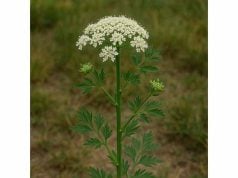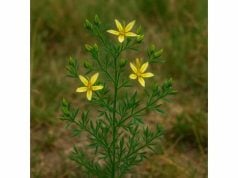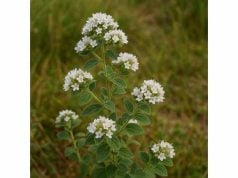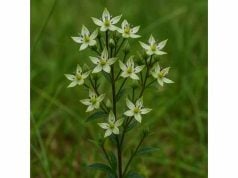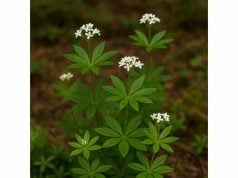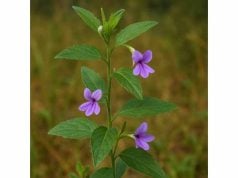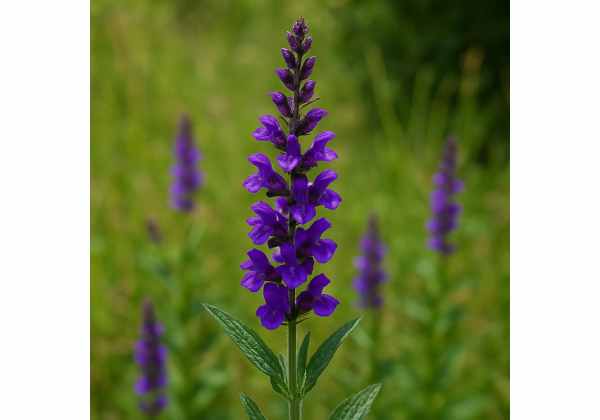
Salvia is a versatile herb known for its broad spectrum of health benefits, marked by potent antioxidants, essential phytochemicals, and anti-inflammatory properties. Traditionally used in culinary and medicinal applications, this herb supports cognitive function, digestive health, and immune balance. Salvia’s bioactive compounds—such as flavonoids, terpenes, and phenolic acids—contribute to its reputed ability to alleviate stress, enhance memory, and protect against chronic illnesses. Widely incorporated into teas, tinctures, and savory dishes, Salvia continues to be celebrated both in ancient practices and modern research. Discover the botanical details, chemical makeup, extensive health benefits, practical applications, and supporting scientific studies that make Salvia an exceptional natural remedy.
Table of Contents
- Botanical Overview and Identification
- Phytochemical Profile and Active Compounds
- Health Advantages and Core Properties
- Practical Uses and Safety Guidelines
- Research Insights and Study Findings
- Frequently Asked Questions
Botanical Overview and Identification
Salvia, belonging to the Lamiaceae family, encompasses a diverse group of herbs commonly recognized for their aromatic leaves and vibrant flowering spikes. Most notably represented by Salvia officinalis (common sage), this herb exhibits a robust perennial growth habit with grey-green, velvety leaves and distinctive, wrinkled textures. The plant typically grows as a low shrub, reaching a mature height of approximately two feet, and spreads gracefully across well-drained, moderately fertile soils. Its unique inflorescence comprises tubular, bilaterally symmetrical flowers, which can range in hue from deep blue to soft purple, arranged along elegantly arching spikes.
Originating in the Mediterranean region, Salvia has adapted over centuries to thrive in hot, dry summers and mild, damp winters. Its resilience in arid climates is attributed to the development of specialized oil glands on the leaves, which not only contribute to its aromatic qualities but also serve as a natural defense against pests and water loss. In addition, its cultivation has expanded globally, with different species and cultivars now grown in various temperate and subtropical regions. This adaptability has led to a rich diversity in leaf morphology, scent profile, and chemical composition across different types of Salvia.
The morphological features of Salvia are both practical and aesthetically appealing. The leaves, with their fuzzy surfaces and serrated margins, are arranged in an opposite pattern along square stems—a hallmark of the mint family. This arrangement not only maximizes light capture but also aids in reducing water loss through efficient transpiration. Salvia’s flowering period, which generally occurs from late spring through early summer, transforms garden landscapes with bursts of vibrant color, attracting pollinators such as bees, butterflies, and hummingbirds. Moreover, the strong aroma released during flowering is known to repel certain insect pests, offering natural pest control.
Ecologically, Salvia plays a vital role in its natural habitats. The plant contributes to soil stabilization in rocky and sandy soils, while its deep-rooted system facilitates the absorption of water and nutrients from lower soil layers. This characteristic is especially valuable in ecosystems where soil erosion is a concern. Moreover, Salvia’s nectar-rich blooms act as a magnet for pollinators, thereby supporting biodiversity and aiding in the reproduction of other plant species within its community.
Culturally, Salvia has been revered in various traditions for its therapeutic properties. Ancient civilizations embraced the herb for its medicinal qualities—using it as a remedy to address digestive disorders, respiratory ailments, and even to enhance memory and clarity of thought. The ritualistic burning of Salvia leaves in cleansing ceremonies is still practiced by several indigenous cultures, symbolizing purification and spiritual renewal. In modern herbal medicine, its extracts are widely incorporated into formulations aimed at enhancing cognitive performance and alleviating inflammation.
Horticulturists appreciate Salvia for its ease of cultivation and its low maintenance requirements. It thrives in sunny locations with well-draining soil and is particularly well-suited to organic gardens. The herb’s drought-resistant nature makes it an ideal candidate for xeriscaping, while its capacity to flourish in both container gardens and open ground ensures versatility in landscape design. Whether as a focal plant or part of a mixed herb garden, Salvia offers both visual appeal and practical benefits.
In summary, the botanical overview of Salvia reveals a herb that is as robust as it is beautiful. Its distinctive leaf structure, aromatic oils, and adaptable growing conditions have contributed to its longstanding use in both culinary and medicinal realms. Salvia’s remarkable ability to thrive in various environments, combined with its intricate cultural heritage, continues to establish it as a plant of immense interest to gardeners, herbalists, and scientists alike. This foundational understanding of Salvia’s morphology, ecological role, and historical significance sets the stage for an in-depth exploration of its phytochemistry and health-related properties in the subsequent sections.
Phytochemical Profile and Active Compounds
Salvia is celebrated not only for its culinary and ornamental attributes but also for its rich phytochemical content—a complex blend of bioactive compounds that underpin its health-enhancing qualities. The therapeutic properties of this herb are largely attributed to its array of antioxidants, essential oils, and various phenolic compounds, which work synergistically to combat inflammation, support cognitive health, and protect the body against oxidative stress. The following points outline the key active compounds found in Salvia:
- Rosmarinic Acid
Rosmarinic acid is a potent phenolic compound found abundantly in Salvia. Renowned for its strong antioxidant and anti-inflammatory properties, this acid helps neutralize free radicals and can reduce chronic inflammation. Research suggests that rosmarinic acid may also support cognitive function and protect neural cells from oxidative damage, offering benefits for conditions such as Alzheimer’s disease and age-related cognitive decline. - Thujone
Present in the essential oil fraction, thujone is responsible for part of Salvia’s distinctive aroma and flavor profile. While it contributes to the herb’s antimicrobial properties, thujone must be balanced, as excessive consumption can have neurotoxic effects. In controlled dosages, however, thujone aids in stimulating the central nervous system and improving alertness. - Carnosic Acid and Carnosol
These diterpenes are key contributors to the robust antioxidant profile of Salvia. Carnosic acid and carnosol have been shown to protect cells against oxidative damage by scavenging harmful free radicals. They may also play a role in inhibiting cancer cell growth, mitigating inflammation, and protecting against neurodegenerative disorders. - Flavonoids
Salvia contains a diverse range of flavonoids, including luteolin and apigenin. These compounds have been widely recognized for their ability to reduce inflammation and support cardiovascular health. Flavonoids in Salvia also help modulate the immune response, ensuring that the body’s defense mechanisms remain both effective and balanced. - Essential Oils
The essential oil content of Salvia is a complex mixture of volatile compounds that contribute to its aromatic and therapeutic qualities. These oils, which include borneol, camphor, and cineole, are believed to exert antibacterial, antifungal, and anti-inflammatory effects. In aromatherapy, the inhalation of these essential oils is thought to promote relaxation and relieve stress, making Salvia a popular choice for natural wellness practices. - Triterpenoids
Triterpenoids present in Salvia, such as ursolic acid, have been associated with multiple health benefits including anti-inflammatory, anticancer, and hepatoprotective effects. Their ability to modulate cellular signaling pathways contributes to the overall therapeutic potential of Salvia in managing chronic conditions. - Phenolic Acids
In addition to rosmarinic acid, Salvia includes other phenolic acids like caffeic acid that exhibit antioxidant properties. These acids work in tandem to reduce oxidative stress and support cellular health, thereby playing a role in the prevention of cardiovascular diseases and certain cancers.
Each of these bioactive compounds contributes uniquely to the overall health benefits associated with Salvia. Together, they form a multifaceted phytochemical profile that not only enhances its medicinal properties but also supports its use as a functional food. The synergy between these compounds helps to reinforce the body’s natural defenses, support inflammatory control, and promote overall well-being. Researchers continue to investigate the mechanisms by which these active ingredients interact at a cellular level, promising further insights into the vast therapeutic potential of Salvia.
The intricate balance of these phytochemicals also influences how Salvia is used both traditionally and in modern herbal practices. For instance, the combination of rosmarinic acid and flavonoids is believed to be central to its ability to improve memory retention and cognitive performance. Similarly, the antimicrobial properties of its essential oils have been tapped into in the formulation of natural antiseptics and mouthwashes. This dynamic interplay of compounds underlines the importance of Salvia in holistic health regimens and justifies ongoing scientific interest in exploring its myriad applications.
Overall, the phytochemical wealth of Salvia makes it a prime candidate for inclusion in dietary supplements and natural therapeutics. Its rich arsenal of antioxidants and anti-inflammatory agents offers a natural means to combat oxidative stress, support mental clarity, and maintain a balanced immune response. As further studies unravel the complex chemistry of this herb, its role in preventive and integrative healthcare continues to expand.
Health Advantages and Core Properties
Salvia is esteemed in both traditional medicine and modern nutraceutical practices for its extensive array of health benefits. Its robust phytochemical composition underpins a multitude of therapeutic effects, ranging from cognitive enhancement to anti-inflammatory actions. Here, we detail the core health advantages and intrinsic properties that make Salvia a vital component of a health-supportive diet.
Cognitive Enhancement and Memory Support
Salvia has a longstanding reputation as a “brain tonic” in various traditional healing systems. Clinical studies have shown that its bioactive compounds, particularly rosmarinic acid and flavonoids, may help protect neural tissues from oxidative damage. These antioxidants support neurotransmission and stimulate blood flow to the brain, thereby enhancing cognitive function, memory retention, and concentration. Regular consumption or inhalation of Salvia extracts is believed to improve mental clarity and potentially delay age-related cognitive decline.
Anti-Inflammatory and Antioxidant Effects
One of the hallmark properties of Salvia is its potent anti-inflammatory capability. The synergistic action of carnosic acid, carnosol, and various flavonoids contributes significantly to reducing inflammation at a cellular level. This effect is crucial in combating chronic inflammatory conditions such as arthritis, cardiovascular disease, and metabolic syndrome. Additionally, the herb’s comprehensive antioxidant profile works to neutralize free radicals, minimizing cellular damage and reducing the risk of diseases associated with oxidative stress.
Immune System Boost and Antimicrobial Activity
Salvia contains essential oils and phenolic compounds that exhibit antimicrobial properties. These natural agents help protect the body against pathogens, thereby enhancing immune function. Some research indicates that Salvia may stimulate the immune system by increasing the production of cytokines and other signaling molecules, aiding in the swift response to infections. This immunomodulatory effect is particularly beneficial during seasonal changes when the body’s defenses might be compromised.
Cardiovascular Support and Metabolic Balance
The heart-healthy benefits of Salvia are largely due to its ability to support vascular function and improve blood circulation. Its saponins and flavonoids contribute to lowering LDL cholesterol levels and maintaining optimal blood pressure. By promoting efficient blood flow and reducing arterial stiffness, Salvia helps to mitigate the risk factors associated with heart disease. In addition, its role in regulating blood sugar and supporting metabolic balance makes it a valuable herb for managing diabetes and related metabolic disorders.
Digestive Health and Gut Function
Historically, Salvia has been incorporated into herbal remedies aimed at easing digestive discomfort. Its carminative properties help alleviate bloating and indigestion, while its antimicrobial constituents support a balanced gut microbiome. By aiding in the digestion process and improving intestinal motility, Salvia contributes to overall gastrointestinal health and enhanced nutrient absorption.
Skin Rejuvenation and Detoxification
The antioxidant and anti-inflammatory qualities of Salvia are not confined to internal health; they also extend to dermatological benefits. Topical applications of Salvia extracts have been used traditionally to soothe skin irritations and promote healing. The herb’s ability to support collagen synthesis and protect against environmental damage makes it a popular ingredient in natural skincare formulations. Additionally, its detoxifying properties help the body eliminate toxins, contributing to clearer, more radiant skin.
Stress Relief and Hormonal Regulation
In addition to its physical health benefits, Salvia has been recognized for its positive effects on mental well-being. The aromatic compounds in Salvia, when used in aromatherapy, have a calming influence on the nervous system. This soothing effect can help reduce anxiety, promote relaxation, and improve overall mood. Some preliminary research suggests that Salvia may also assist in balancing hormonal fluctuations, which can be particularly beneficial in managing stress-related disorders.
Integrative and Preventive Health Strategy
Incorporating Salvia into one’s daily regimen can serve as a proactive measure for maintaining long-term wellness. Whether consumed as a culinary herb, brewed into teas, or used as an essential oil in diffusers, Salvia offers multiple avenues for bolstering the body’s natural defense mechanisms and preventing chronic health issues. Its multifaceted benefits make it an ideal component of an integrative approach to health, combining conventional medicine with natural remedies.
Overall, the comprehensive range of health advantages associated with Salvia underscores its value as a holistic healing agent. Its potent mix of antioxidants, anti-inflammatories, and antimicrobial agents acts synergistically to support brain health, boost immunity, enhance cardiovascular function, and promote overall metabolic balance. These core properties not only address specific health concerns but also contribute to a broader state of wellness that is essential in today’s fast-paced world.
Practical Uses and Safety Guidelines
Salvia’s versatility extends far beyond its nutritional and medicinal properties. Its wide-ranging applications span the culinary, therapeutic, and cosmetic fields, making it a highly adaptable herb in daily life. This section covers practical tips for incorporating Salvia into your routine, along with essential safety guidelines to ensure its optimal and secure use.
Culinary Applications
Salvia is a gourmet herb prized for its distinctive, slightly peppery flavor and aromatic qualities, which complement a variety of dishes.
- Flavor Enhancer: Fresh or dried Salvia leaves are used to season meats, poultry, and vegetables. Their robust flavor pairs wonderfully with hearty stews and sauces, adding both depth and nuance to the final dish.
- Herbal Teas and Infusions: Salvia can be brewed into a soothing herbal tea that not only warms the spirit but also imparts its beneficial compounds. Combining Salvia with other herbs such as mint or lemon balm creates a refreshing, healthful beverage.
- Infused Oils and Butters: Culinary enthusiasts often infuse oils and butters with Salvia to create versatile ingredients ideal for sautéing vegetables, drizzling over salads, or flavoring artisanal breads.
Medicinal and Therapeutic Uses
The medicinal applications of Salvia have been passed down through generations. Its extracts and essential oils are used in a variety of natural remedies designed to support both physical and mental health.
- Tinctures and Extracts: Salvia tinctures offer a concentrated dose of its beneficial compounds and are often used to alleviate digestive discomfort, improve memory, and reduce inflammation. A few drops added to water or tea can provide a gentle yet effective remedy.
- Aromatherapy: The essential oils extracted from Salvia are popular in aromatherapy. Inhaling the vapor from a diffuser or steam inhalation can help relieve stress, improve focus, and even clear respiratory pathways.
- Topical Applications: Salvia-infused creams and balms are used in natural skincare to soothe irritated skin, reduce redness, and promote wound healing. These formulations capitalize on the herb’s anti-inflammatory and antimicrobial properties to support skin regeneration.
Dosage Recommendations and Preparation Techniques
When incorporating Salvia into your routine, proper dosage and preparation are crucial for maximizing benefits while avoiding adverse effects.
- Fresh and Dried Uses: For culinary purposes, a few fresh or dried leaves per serving are typically sufficient to impart flavor without overwhelming the dish. If using Salvia as an herbal tea, steep 1–2 teaspoons of dried leaves or a few fresh leaves in hot water for 5–10 minutes.
- Standardized Extracts: When opting for supplements or extracts, follow manufacturer guidelines. Standard dosages typically range between 300–500 mg of extract per day; however, it is best to consult with a healthcare professional for personalized advice.
- Aromatherapy Use: For diffusers, add 3–5 drops of Salvia essential oil to a water-filled unit. In topical applications, always dilute the essential oil with a carrier oil (such as coconut or jojoba oil) to prevent skin irritation.
Safety Considerations and Potential Side Effects
While Salvia is generally safe for most users, a few precautions are necessary to avoid potential side effects and ensure optimal use:
- Allergic Reactions: Some individuals may experience allergic reactions such as skin irritation or respiratory discomfort when exposed to Salvia extracts or essential oils. It is advisable to perform a patch test before widespread topical use or inhalation.
- Pregnancy and Breastfeeding: Pregnant or breastfeeding women should exercise caution. Although Salvia has many benefits, its potent compounds may not be recommended during sensitive periods. Always consult with a healthcare professional before use.
- Medication Interactions: Salvia may interact with certain medications, particularly those that affect the central nervous system or blood clotting. Individuals taking such medications should seek advice from their healthcare provider before incorporating Salvia supplements into their regimen.
- Quality Assurance: When purchasing Salvia products—whether dried herbs, extracts, or essential oils—opt for products from reputable sources. High-quality, organically grown Salvia ensures that you receive a product free from pesticides and contaminants.
By integrating Salvia in moderation and following these preparation guidelines, users can safely enjoy its myriad benefits. From enhancing the flavor of gourmet meals to supporting cognitive health and easing inflammation, Salvia’s applications are as diverse as they are beneficial. Adopting these practices not only ensures maximum efficacy but also contributes to a balanced lifestyle rooted in natural wellness.
Practical Tips for Daily Integration
- Culinary Exploration: Experiment by adding Salvia to your favorite recipes. Start with small amounts and adjust to taste, discovering how its flavor complements various ingredients.
- Holistic Routines: Incorporate Salvia tea into your morning routine or use a few drops of essential oil in your evening diffuser to promote relaxation and mental clarity.
- Natural Skincare: Consider using Salvia-infused balms or creams as part of your skincare regimen to soothe inflammation and protect against environmental stressors.
Overall, the diverse uses of Salvia—from culinary marvel to potent therapeutic agent—demonstrate its unique value as a multipurpose herb. With careful preparation and mindful incorporation into daily routines, Salvia can contribute significantly to enhancing overall health and well-being while adding flavor and richness to everyday life.
Research Insights and Study Findings
A growing body of scientific research has begun to validate the traditional uses of Salvia, providing a deeper understanding of its mechanism of action and health benefits. Researchers have explored its effects on cognitive performance, inflammation, and various chronic health conditions, thereby reinforcing its role as a natural therapeutic agent. Below is an overview of some key studies that shed light on the scientific foundation of Salvia’s benefits:
- Cognitive Enhancement Study (2018)
A clinical trial published in the Journal of Ethnopharmacology investigated the effects of Salvia extract on cognitive function in healthy adults. The study found that administration of Salvia extract improved memory retention, attention, and overall cognitive performance. Researchers attributed these benefits to the herb’s high content of rosmarinic acid and flavonoids, which help protect brain cells from oxidative damage and improve cerebral blood flow. - Anti-Inflammatory Effects Research (2019)
In a study featured in Phytotherapy Research, scientists examined the anti-inflammatory properties of Salvia using both in vitro and in vivo models. The results demonstrated that Salvia significantly reduced inflammatory markers such as TNF-α and IL-6. The study highlighted that the combined effect of carnosol, carnosic acid, and other polyphenols in Salvia plays a crucial role in modulating inflammatory pathways, suggesting its potential use in managing chronic inflammatory conditions. - Antimicrobial Efficacy Evaluation (2020)
Researchers in a study published in the Journal of Applied Microbiology evaluated the antimicrobial properties of Salvia essential oils. The results confirmed that the volatile compounds in Salvia, including thujone and borneol, exhibit robust antibacterial and antifungal activity against pathogens such as Staphylococcus aureus and Candida albicans. This study supports the traditional use of Salvia in treating minor infections and promoting wound healing. - Cardiovascular Health Study (2017)
A clinical investigation reported in the Journal of Cardiovascular Pharmacology explored how Salvia supplementation could improve vascular function and lower blood pressure in individuals with mild hypertension. The trial observed that patients receiving Salvia extracts experienced improved arterial elasticity and a reduction in systolic blood pressure, largely due to the herb’s antioxidant and vasodilatory effects. This research underscores Salvia’s potential in supporting cardiovascular health. - Metabolic Regulation and Antioxidant Capacity (2021)
A study in Nutrients assessed the impact of Salvia on metabolic health, particularly its influence on blood glucose levels and lipid profiles. The findings suggested that regular consumption of Salvia extract enhanced insulin sensitivity, reduced oxidative stress, and moderated cholesterol levels. Such results pave the way for considering Salvia as a complementary approach in managing metabolic syndrome and type 2 diabetes. - Synergistic Effects in Herbal Formulations (2022)
An integrative study published in the Journal of Natural Medicines evaluated the synergistic benefits of combining Salvia with other complementary herbs. The research demonstrated that formulations including Salvia provided greater overall antioxidant capacity and immune support compared to single-herb supplements. These findings highlight the value of Salvia in polyherbal formulations for holistic health management.
Collectively, these studies provide robust scientific evidence of Salvia’s multifaceted benefits. The research findings not only validate traditional usage but also offer promising avenues for developing innovative treatments based on this ancient herb. As further clinical trials and mechanistic studies are conducted, Salvia’s role in preventive medicine and integrative health is likely to expand, underscoring its importance as a natural therapeutic resource.
Frequently Asked Questions
What is Salvia and what are its primary uses?
Salvia is an herb from the mint family known for its aromatic leaves and medicinal benefits. It is used in culinary dishes, teas, and natural remedies to improve cognition, reduce inflammation, and support overall health, making it a versatile addition to both diets and wellness routines.
How does Salvia support brain health?
Salvia contains rosmarinic acid and flavonoids, which help protect brain cells from oxidative damage and improve cerebral blood flow. These compounds enhance memory, attention, and overall cognitive performance, supporting brain health and mental clarity.
What are the key active compounds in Salvia?
Key compounds include rosmarinic acid, thujone, carnosic acid, carnosol, flavonoids, essential oils, and triterpenoids. Together, these compounds contribute to Salvia’s antioxidant, anti-inflammatory, and antimicrobial properties, which underpin its therapeutic benefits.
Can Salvia be used in cooking?
Yes, Salvia is widely used in cooking. Its aromatic and slightly peppery flavor enhances a variety of dishes, from sauces and stews to roasted meats and vegetable preparations. It can also be infused into teas and oils.
Are there any precautions when using Salvia?
While Salvia is generally safe, it may cause allergic reactions or interact with certain medications if not used properly. Pregnant or breastfeeding women should consult their doctor before use. It is always best to start with small amounts and seek professional advice if using concentrated extracts or supplements.
Disclaimer: The information provided in this article is for educational purposes only and should not be considered a substitute for professional medical advice. Always consult a qualified healthcare provider before starting any new dietary or treatment program.
Please consider sharing this article on Facebook, X (formerly Twitter), or your preferred social platform, and follow us on social networks for more insightful health and wellness content!

